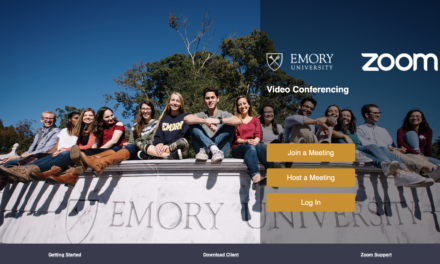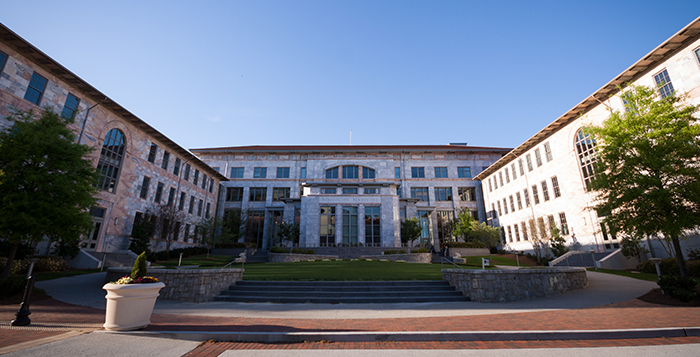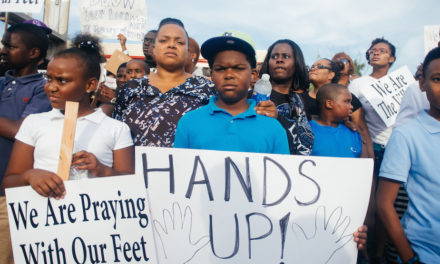University and University-affiliated groups can remove certain speech in limited public forums, the Emory University Senate Standing Committee for Open Expression decided in an unanimous Sept. 26 opinion.
The opinion, titled “In Re Emory Integrity Project Chalkboards and Other Limited Public Forums,” states that content in a limited public forum can be erased if it is unrelated to the topic of the forum. A limited public forum is a space in which “community input is invited but participation is limited to select groups or particular subject matters,” according to the opinion.
If a limited public forum is formed, the University or University-affiliated body must clearly define who is allowed to participate in the forum and what subject matter is permitted, the opinion stated. The restrictions must be “reasonable and viewpoint-neutral.” If people make comments in the forum that violate the restrictions, the University or University-affiliated body that created the forum may erase those comments.
Examples of limited public forums include online spaces, such as Facebook groups dedicated to community members like “Emory University Class of 2021,” or “more ‘metaphysical’ forums like a Student Activities Fund created ‘to support a broad range of extracurricular student activities,’” according to the opinion.
According to the opinion, a specific limited public forum sparked the debate on the extent that expression could be regulated in these forums. The Emory Integrity Project, a joint project of the Center for Ethics and the Division of Campus Life, placed chalkboards across the Atlanta campus Spring 2017 asking students to respond to different prompts such as “Making a positive impact on the world is …” and “Leading with integrity looks like …” The opinion notes that some responses were “serious and engaging,” while others were “nonresponsive references” to jokes and memes like “Harambe.”
Those actions caused the Committee to consider if it would be acceptable to erase some of the irrelevant responses if they are “unrelated or nonresponsive.”
“[Groups or individuals in charge of limited public forums] may even curate the content in other (viewpoint-neutral) ways, such as by erasing comments after a certain time, erasing comments that are duplicative to allow more space on the chalkboard for other comments or erasing comments that fall below a (viewpoint-neutral) level of quality,” the opinion reads.
“Viewpoint-neutral” is a common term used in First Amendment law that means that one cannot discriminate against another based on that person’s viewpoint.
“If you have an Emory Integrity Project chalkboard asking for views about protesting the national anthem, you can write ‘protesting the national anthem is very courageous’ or ‘protesting the national anthem is very disrespectful’ — either of those is allowed,” Open Expression Committee Chair and Associate Professor of Law Sasha Volokh said. “On the other hand, if the chalkboard said, ‘Write down why you think protesting the national anthem is courageous,’ that would be not viewpoint-neutral because it would only accept writing of one particular viewpoint.”
Volokh said pointed to the example of a Facebook group as a possible limited public forum.
“You could say, this is a Facebook group where you can announce events to relate to English literature, and, at that point, if people start getting into a political discussion, chances are that’s not related to the announced subject matter,” Volokh said. “On the other hand, if they had a Facebook group that explicitly said it was for the freshman class to discuss whatever is of interest to them, then students could get into a political discussion and the University could not censor anything.”
Groups can also curate content in a viewpoint-neutral manner by taking actions such as erasing comments after a certain time or erasing comments that are duplicative to allow more space on a chalkboard for other comments, according to the opinion.
Despite potential limitations under the new opinion, freedom of expression is still protected under the Open Expression Policy, Volokh said.
“A club can formulate its own policy,” Volokh said. “For example, the Latino Student Organization can decide to take a specific position or to invite a specific speaker, and they don’t have to invite the opposite speaker or give time to the opposite position.”
Volokh added that those rights extend to members of the University administration, including University President Claire E. Sterk.
“Sterk can say things in favor of Donald Trump or in favor of DACA students or transgender students,” Volokh said. “She has her rights, and the University as a whole can choose what message to convey. Departments can do the same, and student organizations can do the same.”
The opinion on limited public forums was written as a collective effort by the Open Expression Committee, according to Volokh. The Committee is composed of 14 people: four faculty members, three staff members, five students (at least two graduate and two undergraduate) and one representative of Campus Life. Volokh said that the voting on the decision to incorporate the idea of limited public forums at Emory was unanimous.
The Open Expression Policy states that Emory “respects the Constitutional rights of free speech and assembly” established in the First Amendment of the U.S. Constitution. Because the University is a private institution, Emory is not directly bound by the First Amendment.





